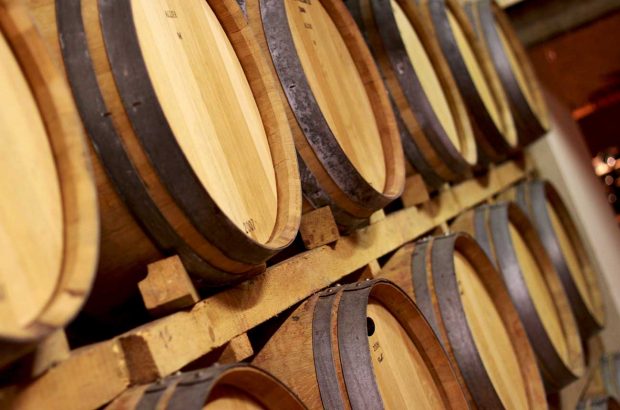The Chester Grosvenor is winner of Decanter/Laurent-Perrier Restaurant of the Year 2014 - as published in the February 2015 issue
See the 2013 restaurant of the year here
From an early stage, journalists are encouraged to play a game that might best be characterised as ‘Spot the Trend’. It’s about adding an extra bit, usually an apparent theme, that gives a story some mileage – a gambit that goes back to the days when reporters still scribbled in notebooks and dictated their stories over the phone, and editors punched up headlines to sell newspapers, rather than the online ploy of assembling lists and clickbait that simply gather views.
For my little corner of the world, especially in London, 2014 lacked mileage; it was more about the restaurant business – mergers and acquisitions, branding and attempts to create franchises – than hospitality or dining well. There was good eating and drinking, to be sure, but mostly from stubborn and smaller independents old and new (bless you, Quality Chop House, Andrew Edmunds, Hedone, A Wong, Bibo, and several new and enterprising wine bars). Out of town though, in several directions, the situation was rather better.
The best example was up north, in Chester, where the splendid food at Simon Radley at the Chester Grosvenor Hotel and the equally outstanding depth in its 1,000-bin wine cellar combined to easily make it the Decanter/Laurent-Perrier Restaurant of the Year. There are not many places that combine this high level of cooking with a matching array of wine so well.
The accolade won’t come as a shock to many from nearby Manchester, Birmingham or Liverpool, as well as regular visitors to the Lake District seeking a respite from the monotony of the M6 motorway. But both restaurant and chef proceed in such a low key – no TV appearances, no cookbooks, no overt attention-seeking – that it comes as a surprise to learn that Michelin has kept the restaurant in its top rank, awarding it stars for 25 years, one of only four in England so celebrated (the others are The Waterside Inn in Bray, Le Gavroche in London and Le Manoir aux Quat’ Saisons in Oxfordshire).
Another surprise is Radley’s conversion: Born in Manchester, he grew up in Hertfordshire in a family not very interested in food (‘No grandmother tying me to her apron strings in the kitchen, passing on what she knew,’ he says with an easy laugh.) The family moved back to the area when he was 16, and he got a job in a pub. ‘I was headstrong and wanted to make a clean break, go my own way, and soon realised it was an interesting life.’ At age 18 he went to France to work as a waiter in Mâcon, and interest turned to fascination: ‘I’d never seen anything like it: those long lunches, several courses, wine throughout, good talk, real enjoyment of food – it opened my eyes to the possibilities; to the ideal of a real restaurant.’ He came back home, back to school, got his qualification, and started cooking, right where he is now.
The main restaurant at the hotel was then known as The Arkle, after a famous racehorse belonging to the owner of the hotel, the Duke of Westminster. Radley showed enough promise there to be sent down to London, for experience at Inigo Jones, then a leading French restaurant. Back in Chester, he moved up the ranks quickly and nailed his first Michelin star in 1988. Over the years there have been stages in Thailand and Hong Kong, but the hotel always pulled him back, finally giving him full responsibility for all food service and putting his name over the door. ‘I think 1988 may have been a better time for chefs than for customers. After nouvelle cuisine, we were encouraged to experiment, and at the time expensive ingredients often defined French cooking – which was still the cuisine of the moment. Now there’s an emphasis on technique, though I think much of it is smoke and mirrors.
‘It’s more satisfying to cook with simple ingredients, especially if you give yourself licence to play and invent and create some excitement over the food,’ he adds. ‘If you question what you’re doing all the time, stretch yourself, you’ve got to be excited by it. And if you do it with consistency, then your customers will be excited too.’
That translates into dishes like scallop with a pig’s-foot croquette, chicory and hazelnuts, or veal sweetbreads with poached lobster and caramelised cauliflower in a light almond-curry sauce, or roasted monkfish cheeks with chorizo, sautéed octopus, seared squid and parsley, or deconstructed rabbit: braised thigh, sautéed liver, sausage and tender saddle, garnished with scampi, leeks and girolle mushrooms. Or a brilliant red-wine brandade (‘It’s just cod, really, isn’t it?’ he says, then shrugs and smiles. ‘Okay, so it’s polished a bit.’)
‘Customers here are discerning, they want to spend their money well. We don’t have the luxury of a media buzz, so we have to meet their expectations and they can relax, enjoy, and keep coming back.’
Last year, in memory of his own solo start, he founded his Kitchen Academy, recruiting 10 apprentices who work in every station of the hotel’s kitchens, mentored by his chefs, paid for their work and formally examined on the spot. If they stay the course, they get their certificate of qualification – obviously enhanced by where and how it was achieved. It’s not surprising, coming from a man who still thinks being a chef is ‘an interesting life.’
Simon Radley at the Chester Grosvenor,
Eastgate, Chester CH1 1LT.
Tel: +44 (0)1244 324024;
www.chestergrosvenor.com
Open for dinner only, Tuesday-Saturday.
Written by eleanor douglas





